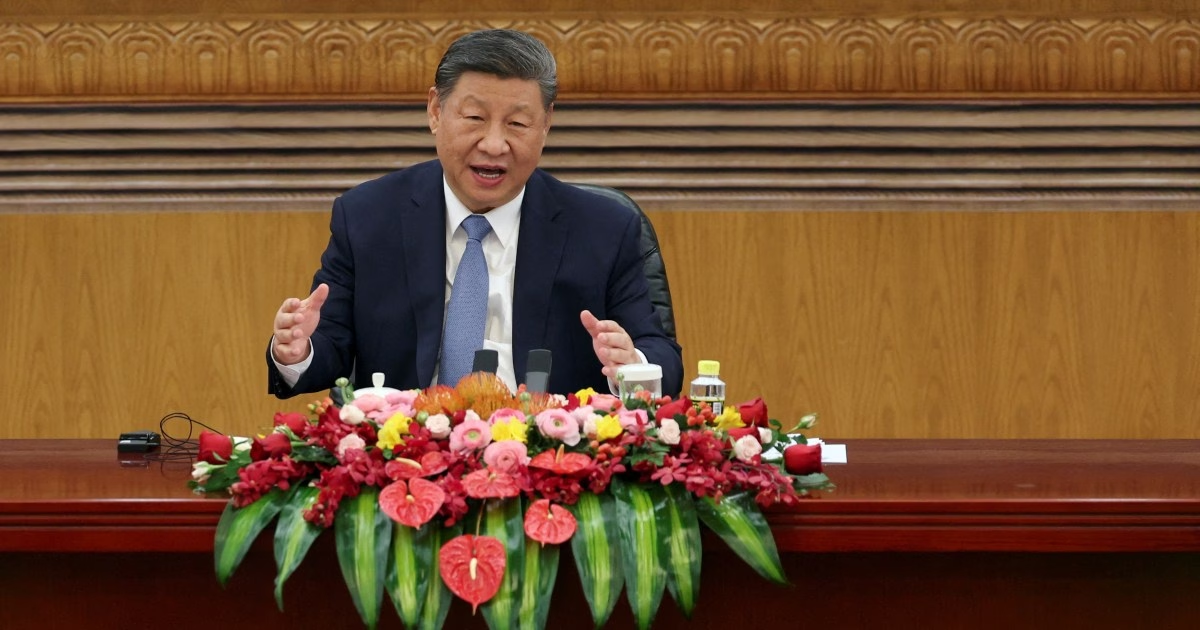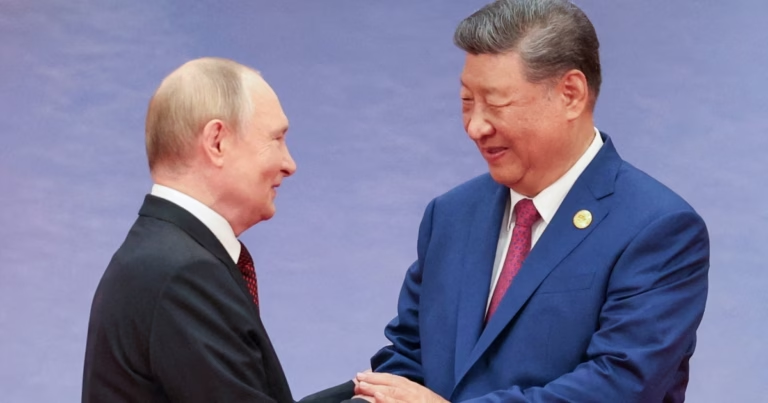Chinese leader arrives in Vietnam on Monday amidst escalating US-China trade tensions.
Chinese President Xi Jinping has issued a warning that “trade wars yield no winners” as he embarks on a Southeast Asian tour, which comes during an era marked by escalating trade tensions between China and the United States.
In an article published in Vietnam’s Nhan Dan newspaper before his visit to Vietnam on Monday, Xi advocated for a “comprehensive and inclusive global economic globalization.” He emphasized that “trade wars and tariff wars yield no winners, and protectionism offers no solutions,” urging countries to protect the multilateral trading system, maintain stability in global production and supply chains, and nurture an open and cooperative international environment.
Defying the rise in unilateralism and protectionism, Xi touted China’s economy as a “key driver of the world economy.” He stated that China will continue to pursue high-level openness, offering more opportunities to the world and fostering shared development through its own high-quality development. Xi’s visit to Vietnam marks the beginning of a five-day tour that will also include stops in Malaysia and Cambodia.
The tour is set against the backdrop of Beijing’s efforts to position itself as a reliable trading partner for the region, amidst the uncertainty stirred by U.S. President Donald Trump’s fluctuating tariff policies.
Trump has implemented a 10 percent baseline tariff on numerous countries, predominantly in Asia, along with specific 25 percent tariffs on vehicles, steel, and aluminum. Additional tariffs on semiconductors are slated to be introduced this week, while the imposition of steep “reciprocal” tariffs on many U.S. trade partners has been postponed until July following a 90-day reprieve announced by Trump last week. Notably, these measures do not apply to China, whose exports have been subject to a 145 percent tariff.
China stands as the largest trade partner for the Association of Southeast Asian Nations (ASEAN), as well as the primary trade partner for Vietnam, Malaysia, and Cambodia individually. In 2024, Vietnam emerged as the largest buyer of Chinese goods in the region, with imports from China soaring by over 30 percent to reach $144 billion, as reported by the General Department of Vietnam Customs.
Following his visit to Vietnam, Xi is set to travel to Malaysia from Tuesday to Thursday and then proceed to Cambodia.
In an article published in Vietnam’s Nhan Dan newspaper before his visit to Vietnam on Monday, Xi advocated for a “comprehensive and inclusive global economic globalization.” He emphasized that “trade wars and tariff wars yield no winners, and protectionism offers no solutions,” urging countries to protect the multilateral trading system, maintain stability in global production and supply chains, and nurture an open and cooperative international environment.
Defying the rise in unilateralism and protectionism, Xi touted China’s economy as a “key driver of the world economy.” He stated that China will continue to pursue high-level openness, offering more opportunities to the world and fostering shared development through its own high-quality development. Xi’s visit to Vietnam marks the beginning of a five-day tour that will also include stops in Malaysia and Cambodia.
The tour is set against the backdrop of Beijing’s efforts to position itself as a reliable trading partner for the region, amidst the uncertainty stirred by U.S. President Donald Trump’s fluctuating tariff policies.
Trump has implemented a 10 percent baseline tariff on numerous countries, predominantly in Asia, along with specific 25 percent tariffs on vehicles, steel, and aluminum. Additional tariffs on semiconductors are slated to be introduced this week, while the imposition of steep “reciprocal” tariffs on many U.S. trade partners has been postponed until July following a 90-day reprieve announced by Trump last week. Notably, these measures do not apply to China, whose exports have been subject to a 145 percent tariff.
China stands as the largest trade partner for the Association of Southeast Asian Nations (ASEAN), as well as the primary trade partner for Vietnam, Malaysia, and Cambodia individually. In 2024, Vietnam emerged as the largest buyer of Chinese goods in the region, with imports from China soaring by over 30 percent to reach $144 billion, as reported by the General Department of Vietnam Customs.
Following his visit to Vietnam, Xi is set to travel to Malaysia from Tuesday to Thursday and then proceed to Cambodia.







